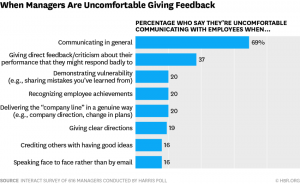CMCBP have been researching inclusive meetings and why they are an important issue for employers seeking to develop effective workplace cultures. CMCBP developed this thinking for a recent workshop on inclusive communications. This blog is sharing some of the areas we communicated during that session.
The way we communicate is based on each individual’s perception. In a great article we read recently titled ‘Do We Really Need Another Meeting? The Science of Workplace Meetings‘ they studied the recipients of communication, evolving concepts of “selective perception,” in order to explain not only the ways in which communication changed attitudes but also the reasons for resistance to change.
Effective communication, however, is a very complex approach and has been defined as “…a connection between people that allows for the exchange of thoughts, feelings, and ideas, and leads to mutual understanding.” Effective communication can come with some challenges in the form of misunderstanding. The recipient of the communication may be affected by their mood. The message given and the message received may mean different things to the people involved in this exchange. It must pass through a filtering system of thoughts and feelings—for both the sender and the receiver. A stressful day at work may result in neutral messages being read as negative due to the sender or receiver being more emotionally charged. This may also be a problem with digital communication for example in an email, where the tone of voice cannot be depicted, which could lead to a misunderstanding of the communication.
Within communication there is the concept of feedback. Many managers feel uncomfortable giving direct feedback.
Tips in giving effective feedback include:
- Describe current behaviours – describe the behaviour(s) you want to reinforce (praise) or redirect (criticism) to improve a situation. Be specific.
- Identify situations – identify the specific situations hat you observed these behaviours. Be factual with examples.
- Describe impacts and consequences – describe the impacts and consequences of the current behaviour. Sell the need for change. Be precise and objective.
- Identify alternative/developmental behaviours – identify behaviours and actions for you, the employee and others to take to improve a situation. Be encouraging and offer ideas. Be prepared to be flexible.
Identifying communication in meetings is important in order to establish inclusivity. An inclusive meeting is a shared environment where all colleagues feel comfortable to contribute their knowledge and ideas in a low pressure setting where all voices are equally valued. Inclusive meetings should also create a sense of emotional safety for the participants.
Do you have inclusive meetings?
- Ask yourself: who speaks the most at the meeting, who has the biggest voice?
- It’s important to note who spoke and, while they spoke, who listened? Did certain people have their heads in their phones while one person was speaking but paid full attention when another person had something to say? Answering these questions will give you action points to improve your meetings.
Biases that can impact inclusive meetings:
- Studies show that it’s very common to mute or discount voices of a certain gender or ethnicity.
- In a study, participants received advice from different voices when attempting to answer a question. Without intending to, the participants (both male and female) essentially muted the female and minority voices and ignored their (correct) advice.
Why does this happen?
- Lazy listeners – people are often thinking of what to say next before even letting the person who’s talking finish speaking.
- This is why active listening is so important.
CMCBP recently presented a workshop in Communication and used some of the above resources, and they were very well received. Some of the feedback from this is as follows:
“Dynamic and interesting…in future I will use effective feedback with staff for difficult conversations”
“I learned that emails or talking aren’t always well received if not prepared…I will be more self aware of providing positive feedback.”
In the article Do We Really Need Another Meeting? The Science of Workplace Meetings they shared a checklist of factors that promote good meetings which is a really useful checklist to apply to your own organisation
If you are interested in learning more about this topic, you can read our blog on Top Tips for Inclusive Meetings.
Alternatively, you can contact Clare on clare@cmcbp.co.uk or on 07594 946166.
Written by Siobhan Headd.








